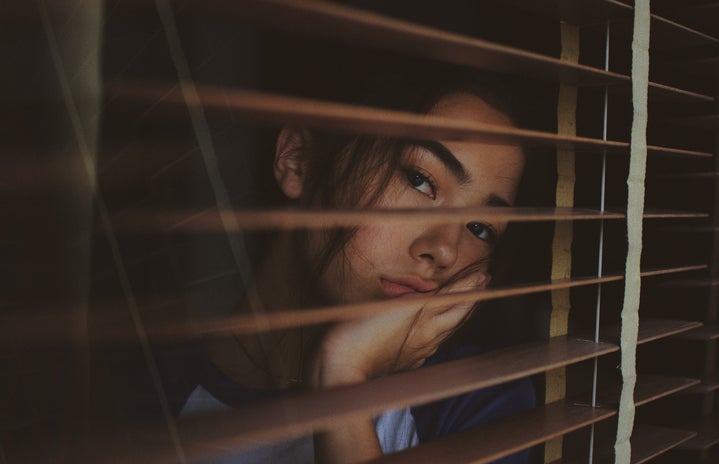It wasn’t the lack of knowledge about “freshmen depression” that led me to develop it myself, rather it was my arrogance. Picture going out of state for your first year in college because that’s exactly what I decided to do when I went to Pennsylvania State University. The feeling of freedom was overwhelming as my family and I drove down to University Park, and I laid in my dorm for the first time. It was amazing! I didn’t understand how anyone could feel sad when attending college. I barely paid attention in my orientation class because I didn’t think any of the “support” and “help” they offered would ever be of any use to me. Nothing was going to go wrong, I thought.
Except everything went wrong. From the classes to social interaction to even just sleeping, nothing was going the way I planned. I was a straight-A student in high school, so barely getting a C in chemistry was a shock. I left all my friends at home and moved to a different state all by myself. I believed making friends would be easy, but it seemed as though everyone was too busy to hang out. Even my own roommate left me within the first two weeks, so I was stuck with a quiet room. However, it was loud at night when my insomnia hit. Maybe it was being away from home, or it was the frat boys from down the block, but sleep was never a friend. My life took a drastic change, and my mental health suffered the most.
I wasn’t alone in this situation. Many college freshmen had experienced depression within their first year of college. Penn State Center for Collegiate Mental Health reported that between 2009 and 2015, students visiting their counseling centers increased by 30-40 percent. The most common concerns for seeking treatment were identified as anxiety and depression by students. The transition to campus life was not as easy as I believed, and before I knew it, I was depressed. Depression is not the same for everyone, and everyone experiences depression differently. For me, it was like drowning in the feeling of hopelessness. I had no interest in getting out of bed—not for classes, activities, and not even to go take a shower. I felt worthless; nothing mattered and nothing made me feel happy. My GPA was going down the drain and my future was dim. Funny enough, sleep eventually became the only thing I looked forward to.
After months of just getting through the day, I finally went to a counselor. The girl who couldn’t understand how freshman depression was a thing found herself walking into a counseling center. One piece of advice that I hope college freshmen can take from my story is that going to a counselor is nothing to be ashamed of. It was because I chose to get help that I find myself where I am today. I transferred to Rutgers for a fresh start and avoided the mistakes I made at Penn State. Even if you don’t feel the need to talk to someone, knowing about the resources that your college has for mental health is important. Don’t let your mental health take a backseat when going off to university, prioritize it!
After counseling, I made some changes in my life. One of which is the effort and time I place on my mental health. There are many tips out there that offer help with depression such as keeping a balanced diet and leaning on social groups. These tips aren’t necessarily bad, but it’s not a piece of cake for anyone with depression to just do. Professional help is my advice. Even if you don’t feel like you’re depressed, meet a counselor anyways. They are there to help make freshmen transition easier and offer every type of support you can get, whether it be academics or extracurricular. Take comfort in knowing that there are people who can help you. You are not alone in your battle, and as cheesy as it sounds, you can overcome it!


